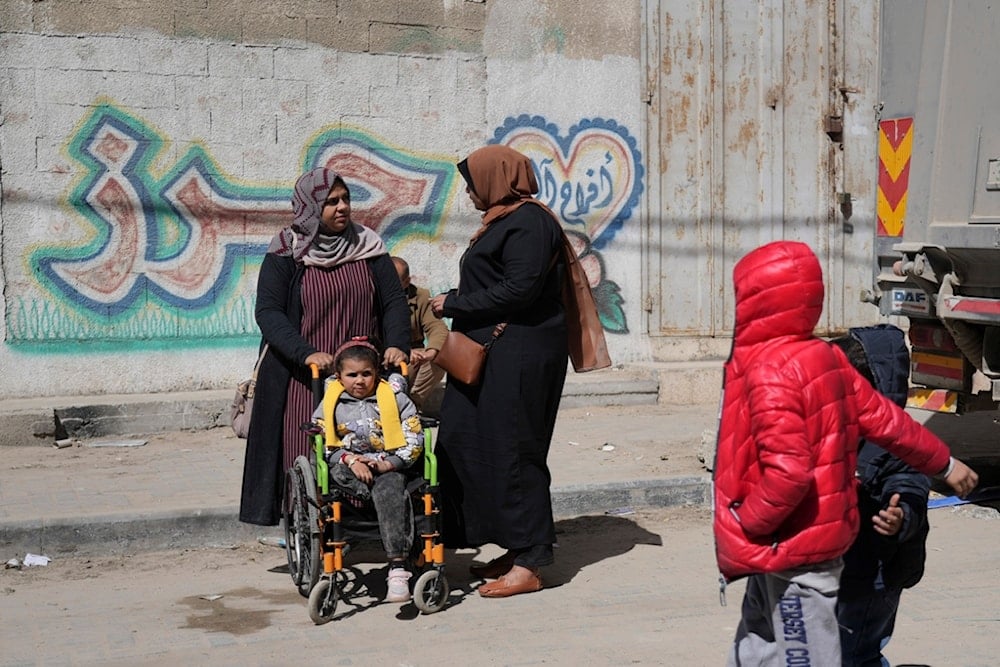UN says women, children most impacted by Israeli war on Gaza
The UN Women’s Special Representative in Palestine voices concern about the war on Gaza disproportionately affecting women and children.
-

Yasmine al-Ghoufary takes her niece Sila Abu Aqlan, 5, to the Artificial Limbs and Polio Center in Gaza City to learn how to walk with a prosthetic leg, on Wednesday, Feb. 26, 2025 (AP)
UN Women has warned of dire consequences for women and girls in Gaza following the collapse of the fragile ceasefire, highlighting "horrifying details" of human losses within just eight days of the Israeli occupation's renewed onslaught.
Speaking from Geneva via video from Amman, UN Women’s Special Representative in Palestine Maryse Guimond reported that between March 18 and 25, 830 people were killed, including 174 women and 322 children, while 1,787 others were injured.
“This means that 21 women and more than 40 children are being killed daily,” Guimond stated. “This is not collateral damage. This is a war in which women and children bear the heaviest burden.”
She further noted that women and children accounted for nearly 60% of the recent casualties, describing it as "a horrifying testament to the indiscriminate nature of this violence."
Guimond relayed calls from UN Women’s partners and women in Gaza urging an end to the war, stressing that survival was their only concern.
'No place to go'
Guimond shared testimonies from women refusing to be displaced again, emphasizing that “there are no safe places anyway.”
She quoted a woman from Deir al-Balah who told her: “My mother says death is the same whether in Gaza City or Deir al-Balah… We just want to go back to Gaza.”
Another woman described the constant state of fear: “We watch the news obsessively. Life has stopped. We haven’t slept all night; we are paralyzed. We cannot leave—my area is cut off, and I fear being bombed. Every nightmare imaginable crosses my mind.”
Worsening humanitarian crisis
Guimond noted that the Israeli regime had halted humanitarian aid entry since March 2 and resumed bombardment on March 18, “putting the lives of civilians at risk.”
“The ceasefire, albeit short-lived, was a lifeline,” she said. “It allowed for some repairs and a return to Gaza City.”
During that brief period, she visited partner organizations working to rebuild. “I saw neighbors banding together to clear rubble from streets and children playing again. Women expressed fragile hope for peace and rebuilding their lives. Thousands of people were making their way back to Gaza City,” she said. “But now, all that hope has been shattered.”
Guimond condemned the continued Israeli assault, which has lasted 539 days, calling it “a war on women, on their dignity, their bodies, and their very survival.” She described how women have been stripped of their fundamental rights and forced to live in a reality where loss is the only constant.
She concluded by calling for an end to the war and urging the enforcement of international humanitarian law to protect civilians equally.
'Absolute nightmare'
According to James Elder, a spokesman for the United Nations Children's Agency UNICEF, traumatized children often begin to process their experience when they return to normalcy.

 4 Min Read
4 Min Read








